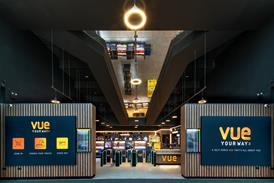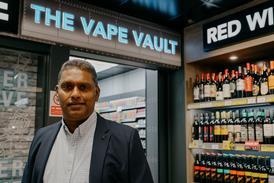- More from navigation items
- Home
- Advice
- Your Business
- Your Stories
- Products
- Stores
- Awards
- Category Management
 Cereals: quality staples drive momentum in the breakfast aisleThis content is provided by Weetabix
Cereals: quality staples drive momentum in the breakfast aisleThis content is provided by Weetabix No- and low-alcohol: drive sales and profits in beer's fastest growing segmentThis content is provided by Asahi
No- and low-alcohol: drive sales and profits in beer's fastest growing segmentThis content is provided by Asahi Soft drinks: driving sales this winterPaid for and in partnership with Coca-Cola Europacific Partners
Soft drinks: driving sales this winterPaid for and in partnership with Coca-Cola Europacific Partners
DVDs: Play or eject

With hordes of consumers turning to the internet to download their movies, is it time to remove DVDs from your shop, or can you record big sales? Aidan Fortune investigates
ALREADY HAVE A REGISTERED USER ACCOUNT? PLEASE LOG IN HERE
To read the full story join the ConvenienceStore.co.uk community today!
Registration is quick and easy and provides access to:
- Unlimited ConvenienceStore.co.uk articles
- Our great range of newsletters
- Content you’ve saved for later via the ‘my library’ feature
And much more…














